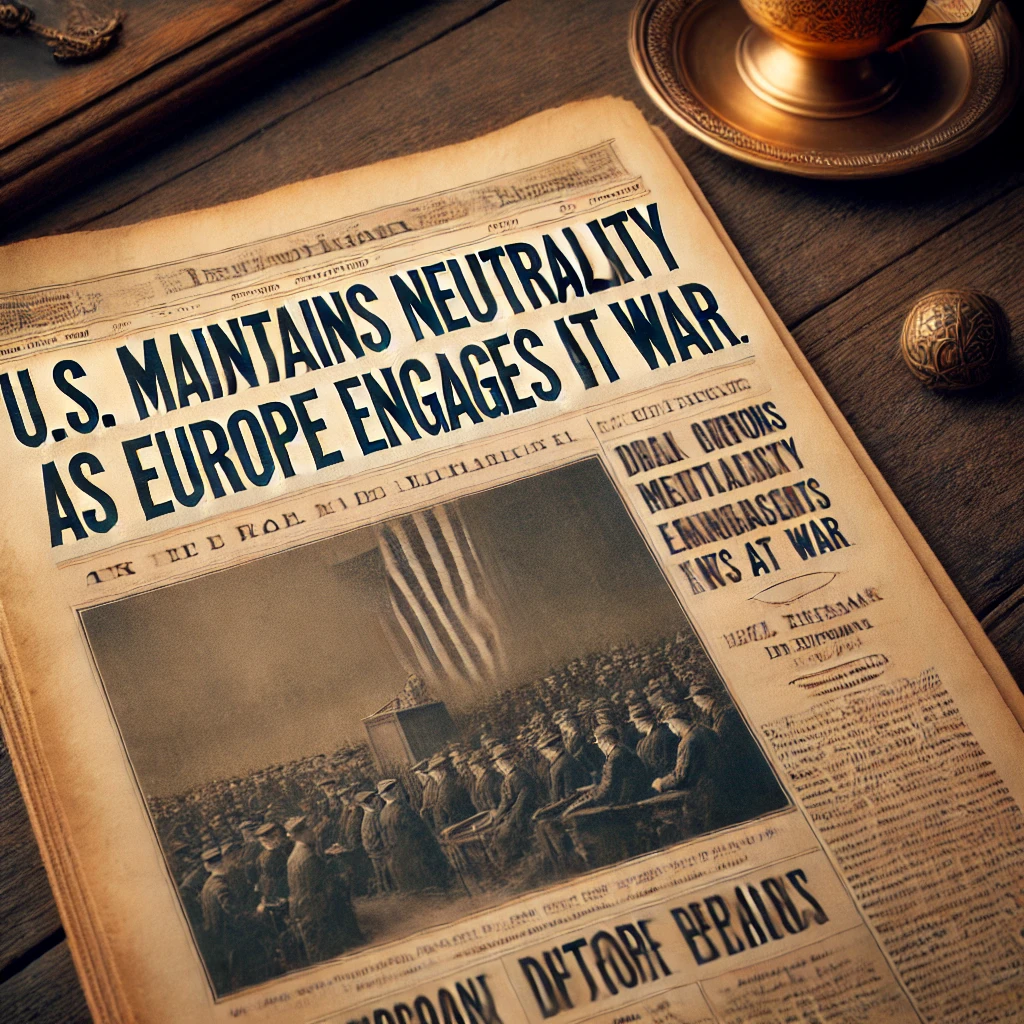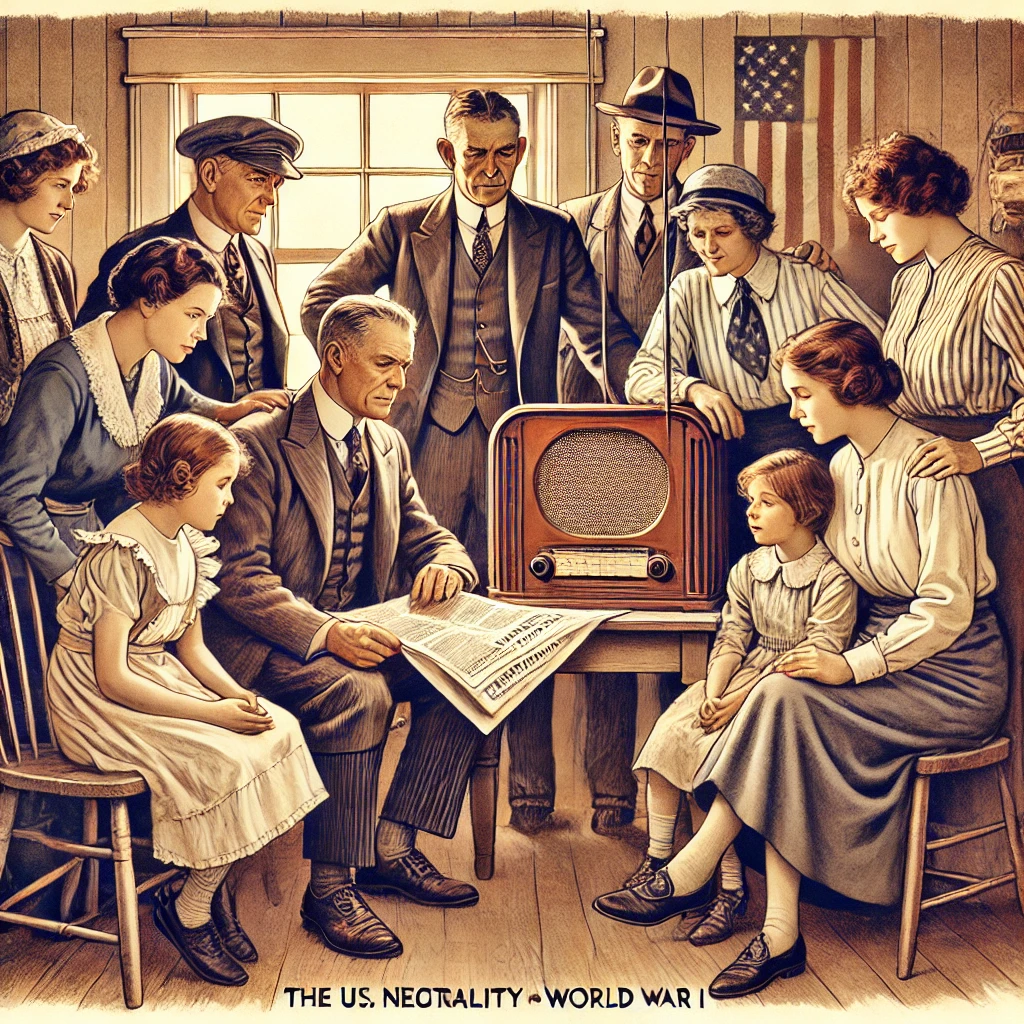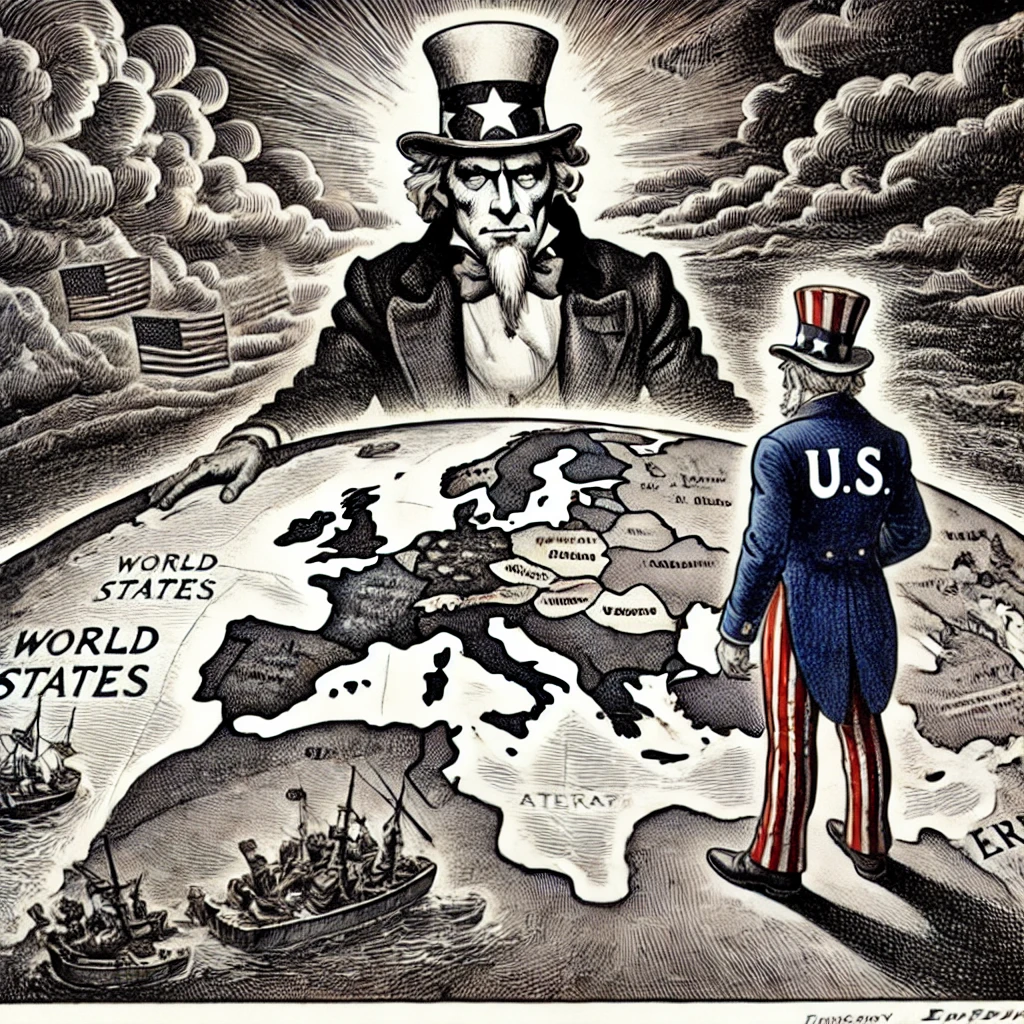The Announcement of Neutrality
On August 3, 1914, President Woodrow Wilson announced that the United States would remain neutral in the escalating conflict of World War I. This declaration came just days after the outbreak of the war in Europe, as tensions among the major powers reached a boiling point. Wilson’s decision to declare neutrality marked a significant moment in U.S. foreign policy, reflecting the nation’s desire to avoid entanglement in the increasingly complex and violent international conflict.
The outbreak of World War I was triggered by a series of events, including the assassination of Archduke Franz Ferdinand of Austria, which led to a rapid escalation of hostilities among European nations. The United States, with its diverse population and a strong tradition of isolationism, sought to distance itself from the conflict and focus on maintaining peace and stability within its own borders.

The Context of Neutrality
The decision to declare neutrality was influenced by a combination of factors, including domestic sentiment and geopolitical considerations. Many Americans were deeply divided in their sympathies, with some supporting the Allies and others leaning towards the Central Powers. The U.S. government aimed to navigate these divisions by adopting a neutral stance, allowing it to act as a mediator while avoiding direct involvement in the war.
Neutrality also reflected a broader trend in American foreign policy at the time. The United States had traditionally adhered to an isolationist approach, seeking to avoid entanglement in European conflicts. By declaring neutrality, the U.S. government hoped to protect its interests and maintain its position as an impartial observer in the global arena.

The Impact of Neutrality
While the declaration of neutrality was intended to keep the United States out of the war, it did not entirely shield the country from the effects of the conflict. Economic ties to both sides of the war meant that American businesses and industries were indirectly involved, and the U.S. faced increasing pressure from both the Allied and Central Powers. Despite its neutral stance, the United States experienced economic and political challenges as a result of the war.
The neutrality policy was also tested by various incidents, such as the sinking of the Lusitania and other provocations that strained U.S. relations with warring nations. These events eventually contributed to the shift in American public opinion and government policy, leading to the eventual entry of the United States into the war in 1917.

The Legacy of Neutrality
The proclamation of neutrality on August 3, 1914, was a defining moment in the early stages of World War I, shaping the United States’ approach to international conflicts for years to come. The policy of neutrality allowed the U.S. to focus on its internal affairs and maintain a position of relative isolation during the initial years of the war.
The eventual entry of the United States into World War I marked a significant shift in its foreign policy, leading to greater involvement in global affairs and a reevaluation of its role on the world stage. The legacy of the neutrality proclamation is a reminder of the complexities of international relations and the challenges of balancing national interests with global events.
The decision to proclaim neutrality in 1914 was a crucial step in shaping the United States’ response to World War I and its future foreign policy. It reflects the nation’s efforts to navigate the uncertainties of global conflict while maintaining its commitment to peace and stability.
